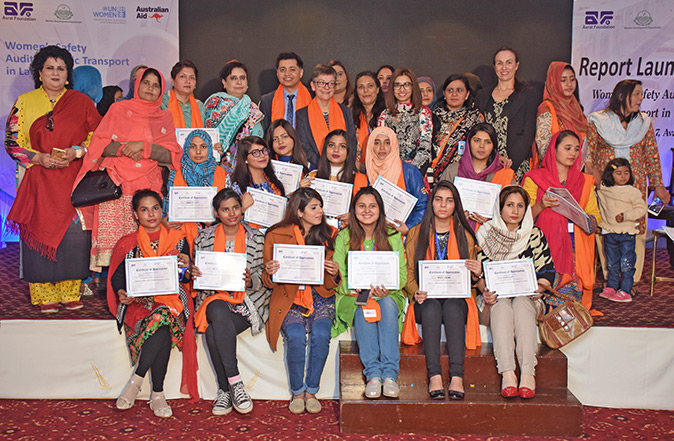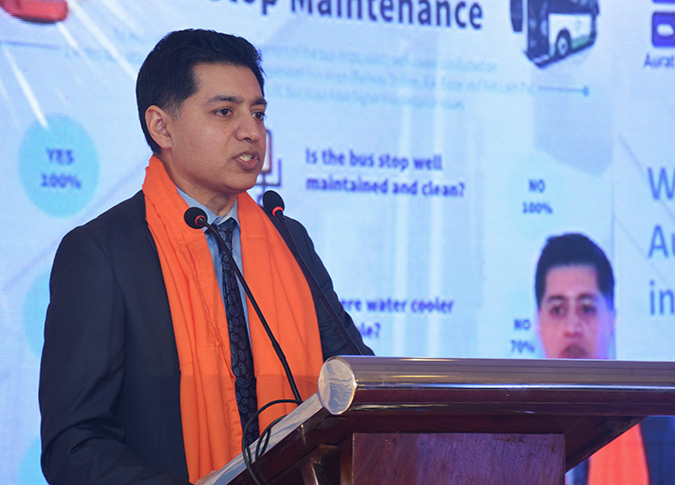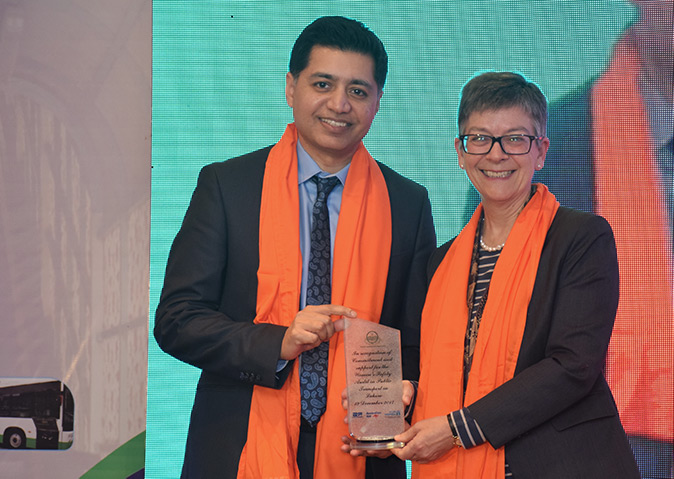Women Safety Audit Report on Public Transport in Lahore reveals challenges faced by women commuters
Date:
Lahore, Pakistan — To reveal and assess the safety concerns of women and girls with regards to the public transport in Lahore, Pakistan's first Women Safety Audit Report was launched on Tuesday.The Women Safety Audit in Public Transport in Lahore was conducted by Aurat Foundation and co-led by the Women's Development Department (WDD) Punjab and UN Women, in collaboration with the Punjab Commission on the Status of Women (PCSW), the Chief Minister's Strategic Reform Unit (SRU), the Punjab Safe City Authority (PSCA) and funded by the Australian Government.

It focuses on the bus services provided by the Lahore Transport Company (LTC) and Metro Bus and includes a detailed desk review, a perception study with 903 women commuters and 100 bus drivers and conductors, key informant interviews, safety walk evaluations at selected bus stops, and focus group discussions.

Speaking on the occasion, Country Representative for UN Women, Jamshed Kazi said sexual harassment and other forms of violence against women in public spaces restrict women's movement and social interaction, and in turn have a profound impact on women's daily routines, lifestyle, and their emotional and physical health.
In her introductory remarks, Secretary Women Development Department for Punjab, Bushra Aman said the Women's Safety Audit supplements government priorities for women's empowerment in Punjab in pursuance of Sustainable Development Goal 5 and 11.
"We look forward to using this crucial information to create safer, smarter and more sustainable cities and communities where women and girls can move around safely, travel to schools, markets, and work or for leisure with dignity, and with equal rights and opportunities," she said.

The Australian High Commissioner to Pakistan, Margaret Adamson said: "Australia is supporting national and provincial efforts to end harassment and violence against women, providing services to women survivors of gender based violence and engaging with communities to challenge discriminatory attitudes towards women and girls."
Presenting an overview of the project, Programme Lead for EVAW, Governance and Human Rights for UN Women, Aisha Mukhtar said that the study was undertaken as part of UN Women's project aimed at creating safe spaces for women and girls, through policy research, community outreach and youth advocacy; in line with UN Women's flagship programme on Safe Cities and Safe Public Spaces, which is the first-ever global programme that develops, implements, and evaluates tools, policies and comprehensive approaches on the prevention of and response to sexual harassment and other forms of sexual violence against women and girls across different settings.
Lead researcher Dr. Raana Malik shared the key findings of the study. She said that inadequate infrastructure and security arrangements, a gender-neutral approach by administrators and policymakers, social attitudes towards women and girls, a lack of awareness among the general population about the impacts of sexual harassment on women's and girls' lives, are some of the major reasons why harassment on public transport have gone unnoticed and perhaps increased. "These factors lead to the existing restrictions on women's mobility, limiting their opportunities to engage in economic activity, education and other aspects of a fulfilled life."
Resident Director Aurat Foundation, Mumtaz Mughal said that without addressing underlying concerns about women's safety in public transport, we cannot achieve greater mobility for women nor contribute effectively towards the larger goal of gender equality in Pakistan.
For more information contact:
Anam Abbas
Communications Officer UN Women
E-mail: anam.abbas@unwomen.org